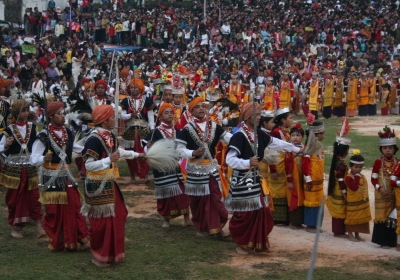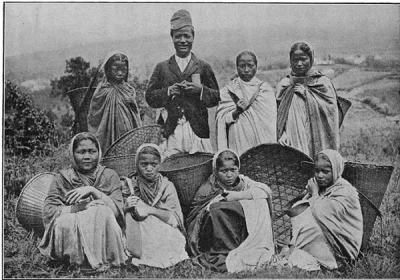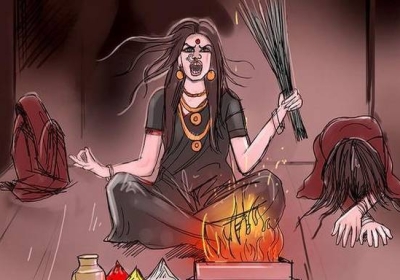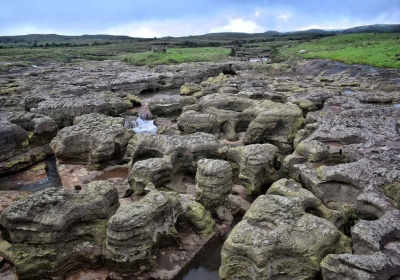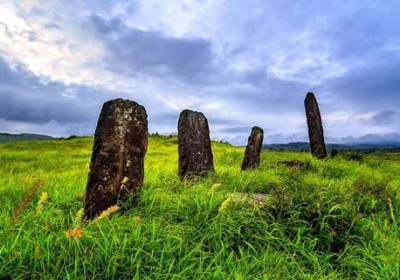KHASI MATRILINEAL CLAN LINEAGE: THE SOCIAL CYCLE
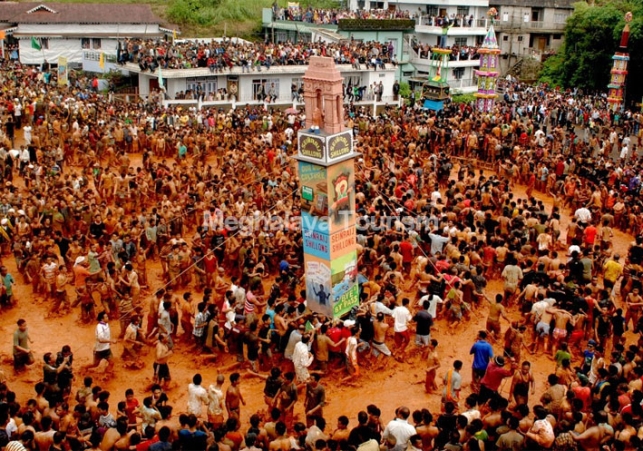
By Raphael Warjri
Mentioned have been made about the attitude of the British imperialists and Christian missionaries towards the traditional way of life after the conquest. At that period of time the Khasi way of life was regarded as primitive. At the instant view of the British and the Welsh people it was weird, it was peculiar, it was strange, it was odd, it was abnormal and it was never ever perceived as different or unique until after some decades, when social scientists, anthropologists and even few bureaucrats realised about the rich and vibrant folk knowledge and tradition of the Khasi people, and they found that matrilineal system is the most distinctive custom in the world.
The folk music and musical instruments were considered raw and bare without melody and even casted evil aspersion when it was associated with animism; but at present it was appreciated in public and even included in the academic studies and find an honourable place in museums and archival records. The stringed instrument 'Duitara' and the pipe instrument 'Tangmuri' is considered as one of the rare musical instruments in the world. The range of musical melody of duitara and the pitch of sound intensity of the tangmuri are of certain distinction among the similar musical instruments elsewhere in the world.
The valuable folk costumes and ornaments were categorised as malevolence or rather manipulated to discard away after conversion into Christianity; however, in the process the British officials and traders swindled away with the precious articles, while ironically gained respect from the local people for the shameful act.
The various folk festivals and ceremonies were vehemently forbidden with the motive to promote and propagate Christianity, and few of the festivals were even banned by the British colonial authorities. The Behdeinkhlam festival of the Pnar people was revived after decades of prohibition by the British colonial authorities with the motive to abolish, but later became one of the most significant festivals, and along with other traditional festivals and ceremonies are being held regularly, studied in various institutions, made documentary films, wrote books; and some of the lesser known festivals and ceremonies were revived and studied in various institutions across the globe.
The only traditional possession that the British authorities or the Welsh missionaries have not been able to take away is the language and the land; if they could they would have imposed and snatched away this also. Nevertheless, the colonial remnants seem to cling unto the majority of the Khasi people today is the fascination with the English language, which is prevalent in every sphere of casual and formal social discourses. To a certain extent the British colonial authorities and Welsh Christian mission at the behest of the former have occupied extensive land for their own administrative convenience, luxurious pastime and for the betterment of the elite society; and large stretches of land have been handed over to the Indian government after Independence, particularly the Defence land. The British colonial authorities and Welsh Christian missionaries were compelled to learn and prepare literature and documents in the local Khasi language to further stabilise their administrative governance and expand their missionary works respectively. However, the language had undergone through certain crucial hardships and it is still in difficult situation till today in 2021. Initially, the Christian mission had adopted Bengalee script and War Shella dialect for Khasi religious literatures; later when British administrative establishment was founded at Sohra, the Sohra dialect was adopted in Bengalee script. Subsequently, one Welsh missionary, Thomas Jones introduced the Latin script or Roman alphabet for writing the Khasi language in Sohra dialect and later became the standard language for the entire Khasi and Jaintia Hills district. After Independence, the Khasi and Jaintia Hills district was under the composite State of Assam and within a decade since Independence the Assam government imposed the Assamese language at every official communication and educational institutions during the year 1960 onwards. Thereafter, the Khasi people resisted and struggled for autonomous governance, and ultimately the State of Meghalaya was carved out of Assam within another decade. The autonomous state was achieved on 21st April, 1972. The resentment still prevailed when the Khasi language is being demanded for recognition under the Eight Scheduled to the Constitution of India, based on the credential of the language in the broad criteria of the apex authority in literature, the Sahitya Akademi and the Department of Languages under Home Ministry.
People may wonder about the connection of folk music, costume, festivals, ceremonies, land and language with matrilineal system. The matrilineal custom is the core to all the aspects of Khasi ordinary way of life to the most complex and formal task in the society. The phawar and folk music is essential in every occasion of maternal and paternal matters in the Khasi matrilineal society, and the most significant is the 'Phawar Nguh Meikha' or 'Shad Nguh Meikha'. This is the ceremony of paying obeisance to the ancestral paternal mothers including the immediate paternal grandmother for all the blessings that the descendants have derived through generations. The ceremony is also part of the festivity to celebrate in honour of the ancestral paternal grandmother with solemn music and chanting of phawar, specific folk dance for the occasion and certain rituals. The mother cult was observed with sanctity at the Lum Ka Meikha, a hillock now situated in the outskirt of Guwahati city. However, with the incursion of the Ahom the sacred cultural landmark of Lum Ka Meikha was seized by the Hindu privileged religious caste and converted in to the Tantric ceremonial sect. The sacred Khasi ceremony of fertility became the alleged sexual occult of the Hindu religious tradition. Even the Khasi nomenclature for the paternal mother 'Ka Meikha' was Sanskritised as Kamakhya. Subsequently, the Kamakhya temple of Hindu religious tradition was erected for the annual occult ceremony and festival of the feminine deity's menstrual cycle, popularly known as Ambubachi.
In the other Khasi tradition, every dance festival and ceremony is always commenced with prayer by the maternal grandmother of the territory or the royal maternal grandmother or queen mother or eldest sister in the case of a province to propitiate the sylvan deities and the market deities for social and economical well being of the citizens. She initiated the rituals at the hearth, before the priest, the nobles and the chieftain performed other rituals at the courtyard. Even the dance festival is initiated by the eldest daughter or princess at dawn in accompaniment of other elders in the territory or the province, before the participitation of others in the formal festivity. The eldest daughter or princess should be decked with the most gorgeous attire and ornaments before she set foot on the dance arena. The land and other properties in the maternal family is always in the custody of the grandmother or mother and the designate custodianship is inherited by the youngest daughter of the maternal family. The land is the soil where vegetation grows, the habitat of all creatures, the source of every resources for sustenance and survival of every being until they decay and became soil once again; primarily it is the earth that most cultures throughout call it the 'Mother Earth'. When modern civilisation is established and geographical location is demarcated for political composition of a nation- it is universally called the 'motherland' and hardly term as fatherland. The surrounding environment of plants and vegetation is called 'mother nature'. The ethnic vernacular language of any community is a universal phenomenon that it is always termed the mother tongue. Anything to do with every primary source is mother- mother earth, mother nature, motherland, mother tongue; and even advance technological devices used the word motherboard. Perhaps, the rest of the world and those who practice patriarchal system should learn and ponder upon the Khasi matrilineal system of clan lineage to relate with humanity.


